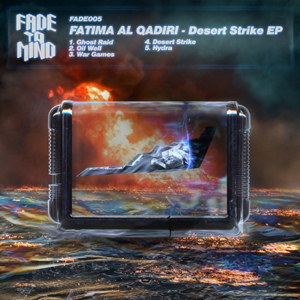Fatima Al Qadiri Desert Strike EP
Whether she’s operating as Ashay or under her own name, Fatima Al Qadiri often doesn’t […]

Whether she’s operating as Ashay or under her own name, Fatima Al Qadiri often doesn’t seem keen to make music that is easy to digest. However, as last year’s Genre-Specific Xperience EP proved, when Al Qadiri filters her vast bank of artistic and musical influences through the world of “club music,” she is more than capable of striking a balance that makes for an equally challenging and alluring product. Her latest offering, the Desert Strike EP, is as likely to unveil hidden melodic twists, unexpected percussive turns, and videogame-like gunshot FX as its predecessor, but with a new focus on slower tempos and more spacious electronic music.
It’s difficult to tell if the layers of vocal-like tones that appear on each of the EP’s five tracks are manipulations of Al Qadiri’s own voice or some choral keyboard patches, but there is no denying the vital role these vocal tones play on Desert Strike. As the rhythmic elements here are left fairly wide open, usually coalescing into halftime patterns, various manipulated “oohs” and “ahhs” fill in the spaces, forming thick chords on songs like “Oil Well”or sprightly melodies on the opening “Ghost Raid.” In doing so, these layers give the EP a somewhat uneasy feel, serving as either the source of a particular song’s eeriness or alternately providing a touch of angelic air to the procession, depending on what they are paired along with. In the case of the EP’s title track, it’s a menacing combination of deep bass notes, and on the record’s standout tune, “War Games,” a slippery synth melody is employed.
Al Qadiri’s penchant for finding the peculiar pockets between these various moods and genres is largely what makes her beats so intriguing. While the selections here do land at a place that’s not too far from the tropical-tinged bass of Fade to Mind associate Nguzunguzu, there is an extra emphasis on melody and a tendency towards a new-age-influenced sonic palette to be heard on Al Qadiri’s own refracted productions. Atop her choppy, bass-loaded rhythms, she continues to unravel an intriguing combination of styles and influences that bring a unique perspective to club music, one that’s at least bound to turn heads, and in some cases, suit adventurous dancefloors.

